Crusader Kings II is one of many, many, Paradox Development Studio and Paradox Interactive grand strategy games, and it shares a lot of features with its cousins. But unlike its cousins, Hearts of Iron and Europa Universalis, it’s not focused on running the nation. No, your goal is to instead run the dynasty at the top. You might be wondering why I am reviewing a game from February, 2012, but Crusader Kings II, or CK2, was a smash hit that brought Paradox into the limelight, and, in my opinion, marked a large change in the design philosophy behind Paradox games. So, read on, intrepid Crusader, and learn what makes CK2 one of my favorite games of all time, even without its DLC.
What is Crusader Kings 2?
As I said in the foreward, Crusader Kings 2 is a dynasty simulator. You play the family, the nation being a secondary priority. The game starts on the 15th of September, 1066, just after the battle of Stamford Bridge. Your goal is to forge a dynasty that is both prestigious and powerful, but you don’t necessarily have to do what the game would otherwise want you to do. Your goals are of your own making, with no mission system or anything of the sort. You can go through to any date in the game’s timespan, so anywhere from 1066 to 1337 AD, but the game goes on a little further, too. There is an absolute ton of content in here, since you can play, without any of the DLC, any Catholic lord in Europe.
Just looking above you can see the sheer number of provinces in the game. But there is more to each province than you can see here. Each province is divided into a number of holdings, each representing major cities, castles and churches within, each ruled by a separate character with a family lineage, their own traits and aspirations. All of those change how that character will live and ultimately, die, in medieval Europe. There are a lot of options, and each game can take a long time to complete, somewhere in the league of a few weeks if you are playing it at a reasonable pace and not attempting to blaze through the entire game time.
In addition, there are a lot of possible outcomes and I mean a lot, no game will come out the same as another even if you play the same character. Maybe in your first game, you play the count of Cornwall and have a large family. Then you marry your eldest son to one of the king’s daughters, after all, it’s a prestigious move to you and the good king always likes to strengthen his relations with his vassals. The two have a child who not only has a claim on your title, but the mother is in the line of succession but far down the line.
So, to seat your family on the throne, you murder the king and all his sons. The good king, while a good man, was a terrible leader, turning his vassals against him with bad wars gaining the realm nothing and costing it many men. So you find no shortage of accomplices to help you in your scheming. The sons die, as does the king and everyone along the line till your daughter-in-law is the Queen of England.
But that means your grandson is the prince, heir to the throne! Within only a few years, you have lined everything up for your dynasty to take the throne of England.
But there are many ways the plan could have gone differently. What if the king had found out about the plotting? He would know you schemed against him, and all the lords who helped would be found out, too. The realm falls into a civil war. Then, perhaps, the Duke of Northumberland decides he would be better off without a king at all, and declares independence. Lancaster follows suit, as does York, and before you know it the entire realm collapses into a series of bickering nationstates, too weak to resist the Franks who are separated by a mere channel of water…
Needless to say, the game has incredible story telling potential for those who like to roleplay as their characters. The nature of the game, that you play your character’s heir after you die, also makes succession games all the more interesting, since players will then act as one long dynasty, becoming more grand and more powerful with each player. But to say each dynasty is guaranteed to become grand is a mistake too often made, since you must be careful in the medieval age, since death can lurk behind every rock.
What is the game like?
In game, there are always multiple paths to whatever it is you have planned. You can be more open, aggressive and a conqueror of nations on the battlefield with vast armies at your command, or perhaps you would like to work from the shadows. No man lives forever, after all, and if you stand to gain from their demise, well, all the better. Your long term goal is to get your score as high as possible through whatever means you find necessary, though sometimes nature can throw a spanner into the works and throw the work of a generation away, such is life and it makes your accomplishments all the sweeter once you finally succeed.
But, don’t think you can simply go around, stomping people into the ground and adding their territory to your own. Your character is limited by their own skills which affects how effectively they tax a holding, or how well an army performs in battle or even how well they get along with people. A poor plotter is not someone you want to use to assassinate someone, for instance. Not if you value your head, anyway. Characters, when they are children, need to be educated by a mentor. They will take on some of the traits of the mentor and develop a few of their own as well as learn an education trait from the mentor. Of course other things can rub off, like religion and culture. But something to remember when a child is being mentored is that they are far from home, so make sure to put them under a guardian you can trust. It’s all too easy for a young child to, say, fall off the battlements…
All the various things you can do ingame are in exquisite detail, especially the battle system which is very detailed indeed.
There are 7 different types of soldier ranging from Light Infantry (Cannon fodder for the most part) to Horse Archer (Mongol style horrors), each with a different purpose in the battle. Each battle is divided into three phases, skirmish, melee and pursue. In Skirmish, the armies are approaching one another. This is where archers, both mounted or not, reign supreme, since you can inflict catastrophic losses on the enemy long before they close into the melee. The melee is where knights and heavy infantry fight, the meat of a battle where young men seek glory and instead get the business end of a mace and the Incapable trait. The third part of the battle is the pursue phase, after a flank has routed. This is where light cavalry is meant to hunt the enemy down and increase the amount of enemy casualties.
Each army is divided into three sections – two flanks and a centre. The centre will usually be commanded by the highest ranking lord, usually the king while the flanks go to highly skilled persons. What happens on a flank is affected by tactics, which are chosen based on a person’s traits. A brave, wrothful man will be more aggressive on the battlefield, attacking relentlessly while a craven might hold back and be more cautious. But there are no wrong traits when it comes to battles – that craven’s cautiousness might stop the army from losing big time against a deceitful lord luring the army into a trap whereas the brave lord would’ve rode in and been cut down in the midst of battle. Great for bards to make songs out of, not something that will always bring you home safe and sound.
And of course, there is plotting against people. Plotting is quite simple, really. You choose who you wish to plot against and your traits and intrigue skill will generate plot power. Usually, there isn’t enough to do what you want on your own, you so invite people to help with the plan. They then add their traits, intrigue skill and political position to the plot and can be the difference between success and failure. Of course, their traits will affect the plot in otherways. For instance, the plot can be leaked by a drunkard or other people and it can be discovered by the target’s spymaster. That can result in harsh consequences, especially depending on what kind of plot you were planning. Maybe you were just trying to kill your fifty-nine year old wife so you could get a nice young one, or maybe you were trying to assassinate the heir to the throne. Both will have consequences for success and failure and those consequences ripple across the world – maybe the king’s son was married to the princess of the Byzantine Empire, breaking a powerful alliance. Maybe he had won the genetic lottery and been a strong genius?
Now, I’ve mentioned traits a lot but I don’t think I’ve actually explained what they are. They are what makes your character you, and there are a lot of them caused by various situations. Been crippled in an accident or in battle? You’re maimed and some people look down on you because of it. Got clubbed over the head with a mace like the chap earlier in this post? You are Incapable, unable to rule on your own and in need of a regent thanks to being comatose. Maybe you are just a really nice guy? Kind trait. Maybe you don’t like to keep it in your pants? Lustful trait. Or maybe you like to hurt people? Impaler trait. All of those have impacts on the game and how people act and react to you. Maybe the king is lustful and has plenty of bastards, but his wife never had a child, leaving the realm without any true-born heir. In that case, he can legitimize one of them and choose them as an heir. But nothing is stopping someone from trying to put one of the others on the throne, which can lead to a nasty succession war that leaves the realm vulnerable. But it’s also a great opportunity to try and take the throne yourself.
But you don’t have to settle at being the king of one realm – you can be an Emperor. At the start of the game, there are only two. The Byzantine Empire, battered but still formidable and ready to rise to glory once again and the Holy Roman Empire in the heart of Europe, a strong power that can collapse or rise to new power. But there are others that can be born, provided someone is powerful enough to do so. Britannia, Francia and Hispania, a few of many, just waiting to be born. As are various kingdoms and duchies. The main driver of the game, something that pushes the game forward, is the event system that gives you random events, little things to do with feasts, for instance, or ones that can give you traits that all help the universe feel more alive and more well developed.
Suffice to say, you won’t find yourself lacking anything to do. Home is quiet? Go on a crusade! Deus Vult! Or maybe look about building your realm up with new holdings or develop the ones you have. Or just sit back and raise your children.
User Interface, Art and Sound, oh my!
As with all Paradox’s grand strategy games, graphics aren’t the focus of the creative resources, but they definitely received some love and care. The art is smooth and consistent and I really, really like the UI – it feels distinctly medieval. This is something I actually find lacking in a lot of games, they’ll focus for a functional UI, but one that lacks a soul and is sterile. The UI is something constantly seen throughout a game, making it look good is essential in my opinion – a beautiful UI is just as important as an accessible one since it helps set the atmosphere for a game with immersion and this brings me to one of my earlier points about this game being a major change in design.
You see, Paradox games have generally had complex UIs with lots of buttons and gauges and so on. It all looked good, but it was difficult to manage and not very intuitive at times. Crusader Kings 2 was an experiment in that area I would say. A lot of time was spent not making the game simpler, indeed, it’s more complex than its predecessor I would say! But rather on making the UI simpler and easy to understand. When I first played Crusader Kings 2, on its launch day, I learnt the UI in around fifteen minutes and that was without the tutorials of which the game has plenty. There are also lots of extra little buttons that you can click, for example a button that loads a character’s Wikipedia page if they have one.
For a Paradox game, and the grand strategy genre in general, that’s a pretty groundbreaking change. Most games in the genre usually go for functional UIs that are as complex as they need to be. But, Paradox has gone the other way, making the UI simpler and easy to manage while making the game more complex and fun. That was definitely a winning formula, the impacts of which you can see in the differences between Europa Universalis 3 and 4. Johan Andersson, the mastermind behind these games, said it perfectly, “Well, I don’t agree with the position that a game is either mass market or complex!”. In my opinion, those are words that the entire strategy genre should hear, since they are definitely very wise words and you can see that they work. Crusader Kings 2 was a highly successful game, one of the most successful that Paradox Interactive has released and is in my top ten. It would have number one if it wasn’t for plenty of nostalgia blocking it from dethroning Empire Earth.
The music is well made, too, with a larger variety in music than its cousin Europa Universalis IV. And, if you want even more music, you can buy music DLCs that add more tracks. My personal favorite song from the entire soundtrack is The King’s Crusade, from the Songs of Albion music DLC. The music fits the game like a glove and is simply icing on a very, very large cake.
Modding – Making New Worlds!
One of the mainstays of the strategy genre, whether it’s a 4X, RTS, TBT or Grand Strategy, one of the signs of a healthy community and appreciation for the game is a large and active modding community. Paradox have nailed this down to an art. The game is extremely easy to mod, with new traits and events being able to be added to the game in almost no time at all. The size of the modding community for this game is titanic. You have smaller projects that just enhance the game that is already there. Then you get the bigger, more ambitious projects. I’m talking about total conversions that completely change the world that the game is played in. The most famous of these is the Game of Thrones mod, which I’ve started to play quite regularly since it really captures the heart and soul of the A Song of Ice and Fire universe and is very well made and taking into account things like Valyrian steel swords and the like. In fact, it’s so well developed I could probably review that as a DLC.
There is definitely no lack of talent in the modding community.
To DLC, or not to DLC?
But of course, every game has its downsides and Crusader Kings 2 is no exception. In the base game, you can only play a Catholic lord. You can’t play a Catholic patrician in Venice, a Muslim lord or a Viking raider. So you are rather limited for choice without buying DLC. There are definitely a lot of Catholic lords to play as, but when you are only playing Catholic lords yet you can see the AI playing as Vikings or as nobles, it’s rather frustrating. Thanks to all the patches, the content is there, you just can’t touch it without paying for the DLC.
But, fortunately, there is a silver lining. The DLC’s actually expand the game more than just being a restriction. You see, you aren’t just paying for access but for a lot of new content. The Old Gods, the DLC that lets you play the Vikings, rolls the start date back to the 800s giving you an extra 200 years of game time, but it also allows you to play pagan nations, go raiding and sail up rivers, etc. A lot of interesting stuff, to say the least. Sunset Invasion adds a climatic end game boss in the form of the Aztecs crossing the Atlantic ocean and invading Europe, a reverse of the events that happened in real life. But, you don’t have to have it always on, so don’t worry about getting hammered by the Aztecs.
Thanks to the modularity of the DLC, though, you can simply come along and pick and choose which DLC you want. I for example, bought the Ruler Designer and Customization DLCs. The former allows me to make my own alternate historical ruler and dynasty, the latter allows me to do things in game like have my hair cut, or rename the entire country.
Multiplayer
With how big the game is, it’s no surprise to see that the game would feature multiplayer. There is a maximum of 32 players in a single game, but they can all be anywhere in the game map they want. They could all work together to run one country. Infact, large multiplayer games get very, very interesting since with that number of humans running one country you start to encounter fun stuff. The game truly comes alive with that number of players and if you follow the TV series Game of Thrones, you’ve got an idea of how it can turn out and it makes the game all that more exciting. This is definitely a title to be played on multiplayer, that’s for sure. The AI, while good, isn’t as unpredictable as a human being which is what puts the fire into multiplayer. Not all players have to have DLC, either. The host can have all the DLC and play whoever they want, but the players who don’t have the DLC won’t be able to.
And this game thrives with multiplayer.
Overall
The game is very, very good. But the main problem comes with the DLC. The game is a really big cake, but you are missing a large slice of that cake if you don’t have the DLC. A lot of mods require the DLC for extra functions that bring them closer to their intended designs. The Game of Thrones mod, as mentioned above for instance, needs the Old Gods to allow the Ironborn player to raid and take salt wives and so on. The AI is good for playing the game on singleplayer, but the game reaches its true potential in multiplayer when you are playing with another human being who has a lot of strategic thinking, something AI in games has never really had. Combined with the scheming and plotting inherent in the medieval age, you’ve got a big bag of surprises just waiting to go off.
Hopefully, you won’t lose your head. And if you do really successful, why not import your nation into Europa Universalis IV and see how it does with the world at its fingertips?
|
Space Sector score:
9.0/10
excellent
|
|---|
The Good:
|
The Bad:
|

31 Comments
Related Articles:
- Paradox Interactive’s Webshop, Sales and EU3 Gift to Fans
- Crusader Kings II: Rajas of India Review
- Paradox Interactive’s Super Steam Sale
- Europa Universalis IV Demo Now Available on Steam
- Europa Universalis IV: Conquest of Paradise Expansion Pack

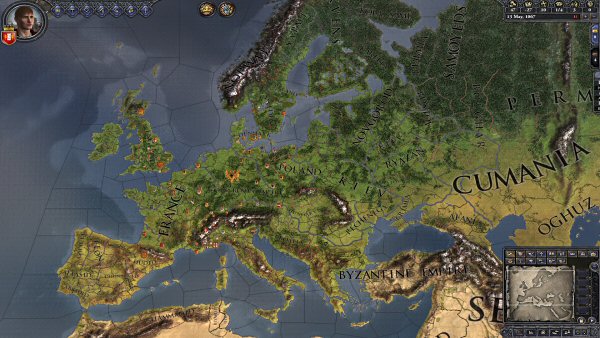
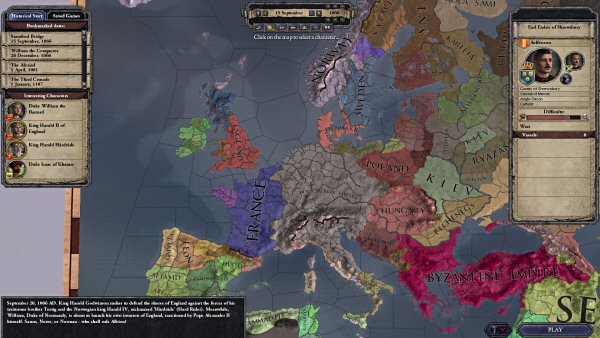
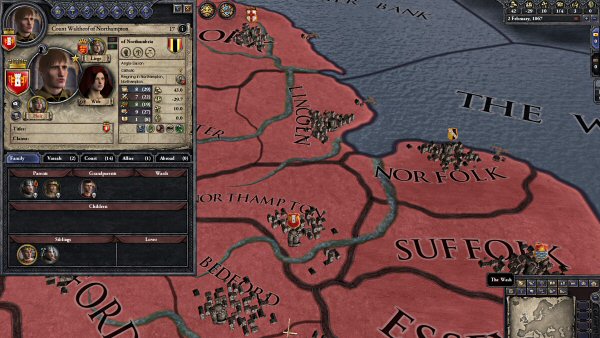
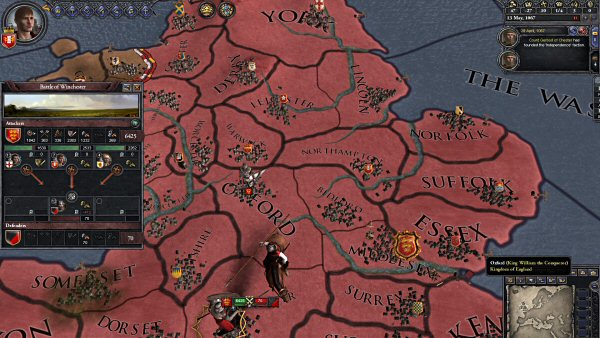
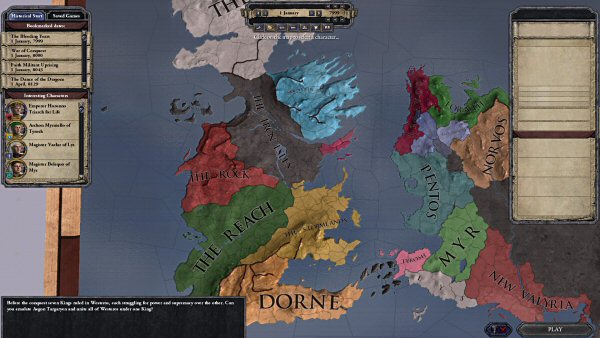
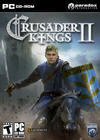
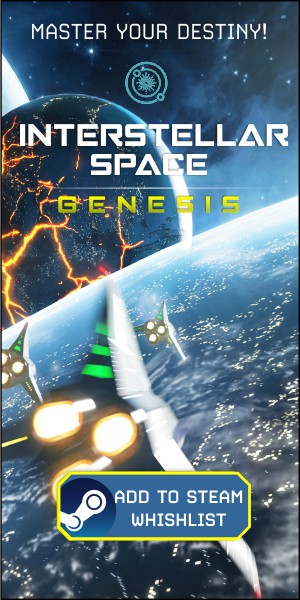
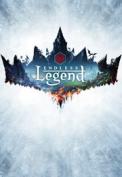

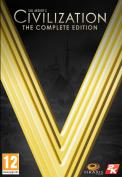


Not that it isn’t nice to see a review, but isn’t this a bit…late?
I would argue “no”. Not everyone buys a game the day (or even the year) it comes out.
A little, but Rajas of India comes out soon, so I thought it would be a good time for us to have a CK2 review :D
It is never too late to read an excellent review of a great game.
I’ve had this game for a long time but I’ve frankly been scared of it – it felt like too much to take in. The only DLC I bought was the Ruler Designer but I can see that a lot of the bigger DLC’s would make a big difference.
I’m annoyed at myself for not trying harder to learn this game as it is clearly very good.
Seeing your review posted here today was a nice surprise, and it makes me want to give the game another try. Surely it can’t be that hard for my brain to figure out…
It looks a lot more intimidating than it actually is :p
Give the tutorials a spin, do the basic ones then just jump right in. I just jumped right in from the get-go and learnt on the fly when I first played, then consulted the tutorials if I ever needed extra info that the tooltips didn’t provide.
Honestly, if you wait for a sale, you can get the game and all content DLC (the DLC that matters) for a song. I’m pretty sure I got the base game and the first 3 DLC packs for like 10 bucks or something.. over a year ago. I already owned the game on GamersGate, but I decided to make the jump for the DLC and for a version on Steam. Just wait to buy the DLC on sale, and you’ll be fine.
Actually, there is a CK2 complete edition available that include all the main DLC’s except the most recent. And it’s often for sale for 75% off on Steam, Humble Store, GMG etc.
I enjoyed your review, thank you. The multiplayer aspect of CK2 is not something I had appreciated.
Please continue to review titles that you feel your readers will benefit from.
Thanks for the good review. I still haven’t purchased this game yet. This only backs up what I’ve seen all over the internet, that its a great game. I think I want to get deeper with EU III before I start on another game similar to it. I’ve had EU III for quite some time and have never got that far into it. That goes the same for Hearts of Iron III.
If you ask me, Europa Universalis and Crusader Kings are rather different animals. The only thing common between them is the creator and that they are both historical grand strategy games.
EU is more about managing and prospering as a nation, while CK2 is more about navigating the political mine field that is medieval Europe.
Well, glad that my money from a purchase from like 10 years ago went to good use. :) Lol, JKing, great review! Game is simply awesome. Can’t wait till the DLC
I enjoyed reading the review. It pretty much matched my own impressions when playing the game.
I’ve tried to get into CK2 on several occasions without success. It looks so good! But to folks new to the strategy genre it’s got a learning curve about as high as a mountain. After reading this review though, I’m going to dive into it again. Hopefully this review will clear a path through the complexity! Wish me luck!
Try a Let’s Play or a player’s guide or something. It’s honestly not that hard, as most of the sub-elements are pretty intuitive. It’s more or less a matter of understanding what’s possible and what general universe of strategies you should employ.
I’d also suggest starting small. Get your feet wet in a relatively lower position (as a Count or a Duke or maybe the King of a smaller kingdom). This will give you a gentler learning.
Killias has the right of it. A good place that is commonly used as a starting ground is Ireland. Personally, I went with Dumnonia after the Norman Conquest. Starting small is definitely the right thing to do.
As others suggested, starting out as an Irish count or duke with the 1066 start is an easy way to learn the game.
You are surrounded by similarly small and independent entities, allowing you to “play medieval” on a smaller scale. You will learn how to fabricate claims, you can fool around with intrigue options and once you manage to form the kingdom of Ireland, you will still have a sufficiently small kingdom, that is easier to oversee and manage.
Once you can manage the five duchies of Ireland, you can set your sights onto bigger countries, or better yet, try to expand your rule over Scotland or England.
Word of warning though. DO NOT TRY to play Ireland with the 867 start that comes with the Old Gods DLC: You will get curb stomped by the vikings along with the rest of England. They should not have messed with the sons of Lodbrok.
Lol, I was actually thinking of trying just that (Irish count + old gods)! Good thing I didn’t.
Actually, for a challenge its an interesting one.. :) Its not for new player’s though. The 1066 start however is a nice one.
Great review that covers all aspects of the game nicely.
What I miss on all Paradox games is that my wish to conquer the world cant be done in the short time periods.. Only in hearts of iron you can conquer 1/3 of the world or so..
Why not a 4X game with this Engine.
A Paradox Civilization would be so nice.
A complexe 4 x game with a big research tree and the possibility to found cities on every section on the map.
And with europa universalis 4 they proved that this engine is capable for random map generation.
Paradox do it! I would buy it..
Game just went on sale, 75% off on Steam for anyone interested
I really wanted to like this game, what with its blending of serious role play elements and grand strategy, but a couple of things trouble me about it. First of all it is very obtuse in its presentation. Secondly, like EVE Online, it is a spreadsheet hell game. Also, not enough is visually realized; too much is left to the player’s imagination. Finally, this game is one of the worst examples of the current terrible trend of too many nickel and dime DLC’s of content that should have been in the original game. Songs of the Caliph??? You’ve got to be kidding. And like EVE Online, I ken a very elitist attitude from the game’s fan base.
One persons problem is another ones advantage. I for one like games that do not try to come up with clumsy ways of visualizing what cannot realistically be visualized in a genre like this.
It is why I liked dwarf fortress as well. It left things to the imagination, and as we all know, our brain is the best GPU there is.
The comparison with EVE is horrible though. Besides the obvious fallacy of comparing a grand strategy to an MMO (pretty much apples vs oranges), if you look at EVE as spreadsheets in space, then you have no idea what that game is about. I have 7 years worth of memories from that game and the only connection to spreadsheets is the one I used to track the profits from my pirating career.
On the DLC front, I sorta agree that paradox tends to fragment their content too much, but it is also important to note, that those are all atmosphere enhancing DLCs and you lose no game play whatsoever by not buying them. Personally I never buy the flavor DLCs when they are released, but pick them up in bulk on sales instead and even only those I find value in. In a sense I guess this approach can be considered good by some, as it allows you to only pay for content you want.
Last, but not least, about the elitist attitude.. I haven’t seen that, but then again, I do not frequent the CK2 boards all that much myself. The few visits I had were okay, however as I am not the type of person who would object when someone calls the game great, I guess our forum experience there might differ.
I just bought the game and was looking at the DLC as well. I sifted though a few and it looks like most of the expansions offer new factions to play, but also have a ton of new systems and features. I realize some features are for that faction only, but it appears like a lot of it adds more depth to the base game. I know I don’t need them to play, but it seems they would bring so much more to the game.
I’m curious to know what expansions people think highly of and what features make the game better. I like to try and experience the most out of my games so I am somewhat interested in what some of the DLC has to offer.
Sword of Islam: A must have DLC in my opinion as it greatly expands the game when you play muslim factions.
Legacy of Rome: Its not that significant, though if you interested in the byzantyne empire or playing around those parts, then I guess it might be worth looking into it.
Sunset Invasion: The one mistake Paradox made. Its a make believe invasion of western europe by the native american tribes, much like the golden horde for the eastern parts. I keep this one turned off in all my games as I find it a sin to ruin an otherwise historically accurate game with nonsense like this.
The Republic: I just call it a minigame expansion, It basically adds a second, interconnected game of republics fighting for trade zones instead of lands. Also it allows you to play the trade republics.
Old Gods: Another must have expansion that expands religions, introduces an earlier start with lots of tribal nations.
Sons of Abraham: I haven’t delved too deeply into this one, but I do believe it adds religion related features and flashes out the holy orders a little. It also adds Judaism as a religion.
Rajas of India (the upcoming DLC): It expands the world to include india and the related cultural / religious features. I have my doubts on how that would fit into a medieval themed game, but regardless of that, it looks to be a rather large expansion.
So to sum it up: Swords of Islam and Old Gods you absolutely must get. I would also include the Sons of Abraham on the must buy list, as it expands religions so you can feel the effect no matter where you rule. The Repbulic or Legacy of Rome on the other hand are more localized in the area they affect in the game and unless you are interested in playing as trade republics or the byzantine empire, you do not really need them.
Sunset invasion on the other hand I do not recommend, unless you like goofing around with alternative histories.
If you want to experience the most out of your games though, you should go with all the expansion DLCs, except sunset invasion. While the effect of the merchant republics or the Byzantine stuff might be less significant than what the other DLCs do, they are still there and they fit into the game well.
Thanks for the reply. Off the top of your head do you know any other key features that are added to the base game that are somewhat important? I know you said religion gets expanded on, but the rest seem to be additions only if you play certain factions. Being new to this game I’m in no rush to try and play other factions. I’m just interested in anything that expands the base game, no matter who you play.
The reason i’m asking is because I know some games are way better with some new additions. I know people give this game a high score as is, but i’m just curious.
The Old Gods is the most important expansion in my opinion, since it rolls the game start back 200 years and generally fleshes the game out a lot.
Its hard to tell, as these expansions are really woven into the game. They are not things you only ever see when you play a given nation, though most of the expansion content happens to be related to particular nations.
The only clearly game altering DLC to date is the old gods, as it expands the game a good 200 years, adds tribal rulers with a new raiding mechanism, adds landless characters the ability to gather support in order to take a claim they own, adds holy sites for all religions and allows you to reform your religion just to name the most obvious features. If you decided to only pick up one, then I would most definitely go with that particular one.
Since CK2 is a highly detailed simulation of interconnected dynasties however, getting the other more specific DLCs might also help flesh out your game as even if you are not playing certain rulers, you will most likely be interacting with them.
Right now there’s a sale on Steam, 20 euros for the game and the Sword of Islam, the Republic, the Legacy of Rome, the Sunset Invasion and their relevant portrait and music DLCs in the package.
Plus, the Old Gods DLC is down to 3.74 euros. That is 24 euros for the game and every DLC except Sons of Abraham and the unreleased Rajas of India.
Also, two other DLCs no one mentioned are the Customization Pack, which lets you customize some small stuff, and the Europa Universalis 4 save converter, which if you plan to get that game, allows the continuation of your kingdom/empire in it.
And here is one of bonus of the Sunset Invasion. When you convert a save that used that DLC to EU4, the American empires are much more stronger than normal EU4.
“The sons die, as does the king and everyone along the line till your daughter-in-law is the Queen of England.
But that means your grandson is the prince, heir to the throne! Within only a few years, you have lined everything up for your dynasty to take the throne of England.”
Technically the Prince is not of your dynasty, unless you married your daughter matrilinearly – something that a King would never accept.
Fun to play :)